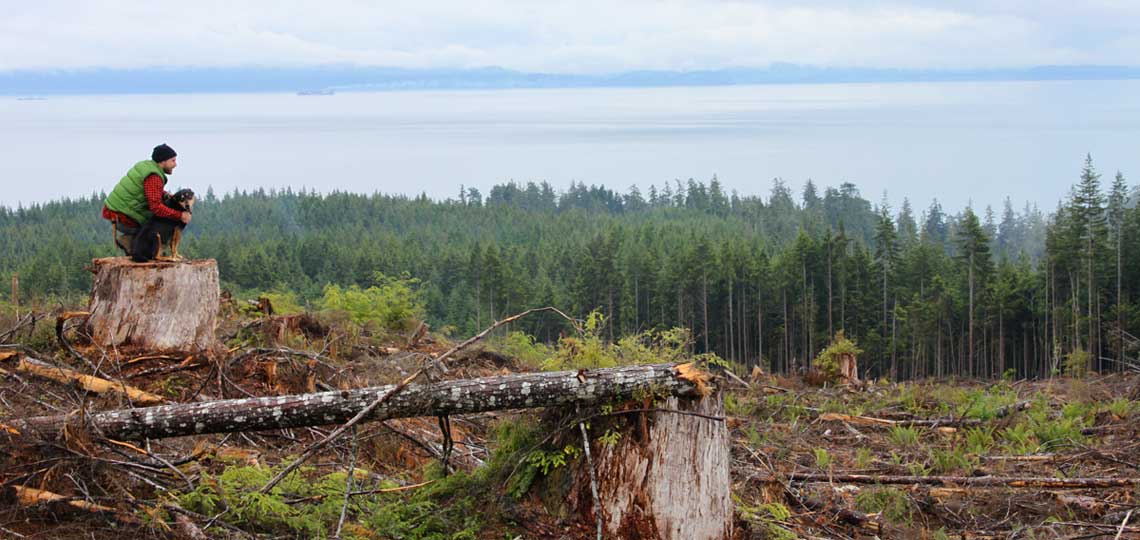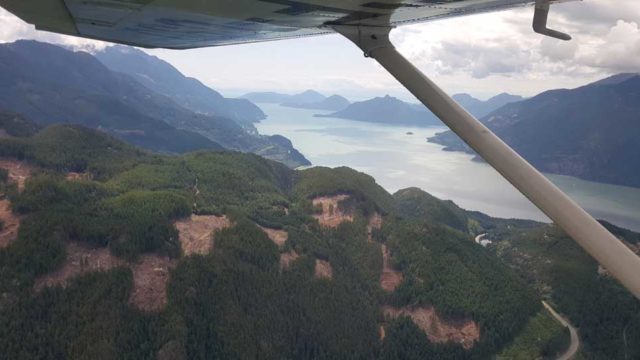Potential changes to British Columbia’s professional reliance model could have a significant impact on how natural resources are managed in a province that’s earned a “wild west” reputation. Devon Page, Ecojustice’s executive director, breaks down the issue by answering some frequently asked questions.
“Professional reliance.”
It is a vague term, but the consequences — clear cutting of old growth forests, the potential for conflicts of interest, and a heightened risk of disasters such as the Mount Polley tailings breach — are very real.
A recent report on professional reliance makes it clear that the government’s practice of outsourcing its responsibility to protect natural resources to “qualified professionals” has been a failure.
That is why Ecojustice is working with a diverse group of other organizations to bring environmental decision-making back to the public interest. Together, we are calling on the province to make changes to the practice of professional reliance.
To help explain the issue further, I answered some frequently asked questions about professional reliance in the video below. You can also read on for more information.
What is professional reliance?
The Gordon Campbell government first implemented professional reliance as part of a deregulation spree in the early 2000’s.
As I explain in the video, the system essentially allows the government to outsource management of the natural environment to “qualified professionals.”
This raises a number of problems.
First, it sets the stage for potential conflicts of interest. Industry is responsible for hiring qualified professionals, which also means they can shop around for a biologist, engineer, forester or other professional that will tell them what they want to hear.
The Chief Inspector of Mines raised this issue in a report on the Mount Polley tailings pond disaster, writing, “Professional reliance can be diluted when it conflicts with client expectations. While clients must rely on the judgement of the EoR (Engineer of Record), they should not create conditions that exert undue influence on the professional with respect to minimum standards.”
But the province didn’t stop there. B.C. went one step further and paired the introduction of professional reliance with a strip down of key environmental laws.
The result: professional reliance hurts the environment to the benefit of industry.
Why is this important now?
This is important because the B.C. government recently shared an independent report on professional reliance. Written by Mark Haddock, the report makes 121 recommendations for improving the government’s approach to nature resource decision-making.
The report makes it clear that the current model is not working in the public or environmental interest. It is particularly critical of how the professional reliance impacts the forestry industry.
Here at Ecojustice, I have seen evidence of this first hand in my work to protect spotted owls.
Professional reliance has led to increased risks for species that rely on old-growth forests. Spotted owls are tanking and the professional reliance model is partly to blame.
As Stephanie Smith, the president of the B.C. Government and Service Employees Union explains, “the number of forest-industry inspections are now less than one-third of the number conducted before professional reliance.”
The Forest Practices Board also aired complaints about the system from both the public and professionals in a 2013 bulletin.
“Where objectives are not clear, or where competing interests and values are in play, it is not realistic to expect professionals working for licensees to define the public interest,” the board said.
The provincial government has a responsibility to address these gaps by implementing Haddock’s recommendations.
In fact, Minister Heyman’s mandate letter contains specific instructions to “review the professional reliance model to ensure the legal rights of First Nations are respected and the public’s expectation of a strong, transparent process is met.”
What is Ecojustice doing about it?
Ecojustice is working with the government and our friends at Evidence for Democracy, the Professional Employees Association, the British Columbia Government Employees Union, the Northwest Institute, Organizing for Change, the BC Wildlife Federation, and the Fraser Watershed Initiative to implement the report’s recommendations.
And if that doesn’t work, we are prepared to develop litigation to pressure decision makers to overhaul the rules.
In particular, we are asking the province to swiftly introduce three key recommendations:
- 1. To establish an independent office of professional regulation and oversight
- 2. To legislate critical elements of professional reliance
- 3. To restore environmental standards to B.C.’s laws
Professional reliance may be a dull name, but the truth is that an overhaul of this practice could result in some of the most significant changes to B.C. environmental law in the past 20 years.


